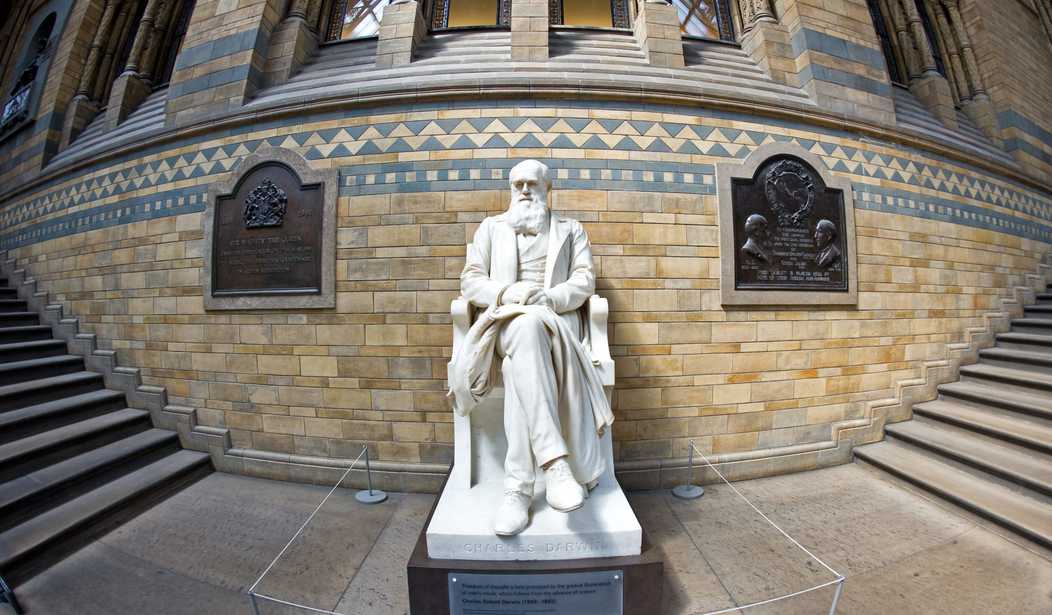Science itself is not hostile to religious faith, but some interpretations of science can be, and many Christians who study or practice science tend to find a gut opposition to faith among their teachers, colleagues, and superiors.
A Christian who earned her Ph.D. in biology at the University of Washington and did post-doctorate work at Harvard opened up to PJ Media about the effective worship of Darwinism and the widespread hostility to Christians and homeschoolers within the community of top scientists.
“The scientific establishment has turned into a Darwinistic church,” Ann Gauger, a senior research scientist at the Biologic Institute, told PJ Media. “They have Darwin Day every year. It’s not uncommon for scientists to genuflect in the direction of Darwin at the beginning of a paper even if it’s not relevant to the topic.”
Indeed, the vast majority of modern scientific research is not directly relevant to Charles Darwin’s theory of evolution. In 2009, chemist and professor Phil Skell, a member of the National Academy of Sciences, warned that Darwinists in the scientific community had long overstated “both the evidence for Darwin’s theory of historical biology and the benefits of Darwin’s theory to the actual practice of experimental science.”
Skell referenced Nobel Laureate Ernst Chain, who wrote that his discovery of penicillin (with Howard Florey and Alexander Fleming) and the development of bacteria resistance to that antibiotic “owed nothing to Darwin’s and Alexander Russel Wallace’s evolutionary theories.”
The same can be said about a variety of other 20th-century findings: the discovery of the structure of the double helix; the characterization of the ribosome; the mapping of genomes; research on medications and drug reactions; improvements in food production and sanitation; new surgeries; and other developments.
Additionally, I have queried biologists working in areas where one might have thought the Darwinian paradigm could guide research, such as the emergence of resistance to antibiotics and pesticides. Here, as elsewhere, I learned that evolutionary theory provides no guidance when it comes to choosing the experimental designs. Rather, after the breakthrough discoveries, it is brought in as a narrative gloss.
Skell emphasized that the theory of evolution — regardless of its truth or falsehood — “offers no help to the experimenter.”
“Studying biohistory is, at best, an entertaining distraction from the goals of a working biologist,” the scientist wrote. Both Darwin’s and Wallace’s theories of evolution have been expanded to include “many of the biological experimental discoveries of the 20th century … despite the fact that those discoveries were neither predicted nor heuristically guided by evolutionary theory.”
Skell concluded that “the overselling of the theory of evolution, because of the incorporation of these later discoveries, may have done a grave disservice both to those two 19th-century scientists and to modern biology.”
Gauger, the Ph.D. biologist, noted that after Skell’s 2009 article, the scientific community seemed to respond by doubling down. “We’ve got to make a connection with evolution or Darwinism in everything we write,” she quipped.
In graduate school, Gauger recalled, her professor knew she was a Christian. “I got grilled on evolution during my qualifying exam, even though it wasn’t one of my areas of expertise,” she told PJ Media. “I asked why, and he said, ‘Just answer the questions.'”
The biologist recalled an interesting moment at a weekly lab meeting during her post-doctorate research at Harvard. “One of the undergraduates gave a presentation about how Christians were stupid. My advisor, who was Jewish — and I don’t think a practicing Jew — stopped her and said that’s not a valid point of view. Of course Christians aren’t stupid just because they believed in God,” she said. Even so, the student felt comfortable openly attacking a religious perspective.
Since that time, conditions have gotten worse. “Christian scientists who face persecution in the lab have been threatened with being thrown out,” Gauger reported. “The culture is not so healthy for people of faith in science, now. That’s not universally true, but it’s definitely a problem.”
After Gauger spent time homeschooling her children and returned to biology, she said her colleagues considered homeschooling outside the norm. “They said, ‘She went to MIT and Harvard, so she used to be smart.'”
One of Gauger’s friends in the scientific community told her a horror story. “Her teacher said he would throw out any Christians he found in his lab,” the biologist said. “Here she is, the most productive person in his lab, and she’s not just being devalued but repudiated for her belief. Everything she’d worked so hard for was being put at risk.”
“She ended up leaving science,” the biologist told PJ Media.
The near worship of Darwinism does not just threaten religious people who dare to question evolution, however. Groupthink, either on Darwinism or climate change, can exclude accomplished scientists, holding back advances in various fields of research.
Dr. Judith Curry, former chair of the School of Earth and Atmospheric Scientists at Georgia Tech, said last year she resigned from her post because she could no longer navigate the stifling orthodoxy on climate change. The German insect paleontologist Günter Bechly was effectively pushed out of his role as museum curator at the Stuttgart Museum of Natural History after his views on Intelligent Design became known.
Religious and political debates can damage many fields of human endeavor, distracting from the ultimate goals and alienating people who should work together and bless the world. In the interests of science itself, perhaps leading researchers should listen to Gauger’s warning and tone down the Darwin.
After all, the theory of evolution was not pivotal to the discovery of penicillin, and it almost certainly won’t be the key to curing cancer.









Join the conversation as a VIP Member